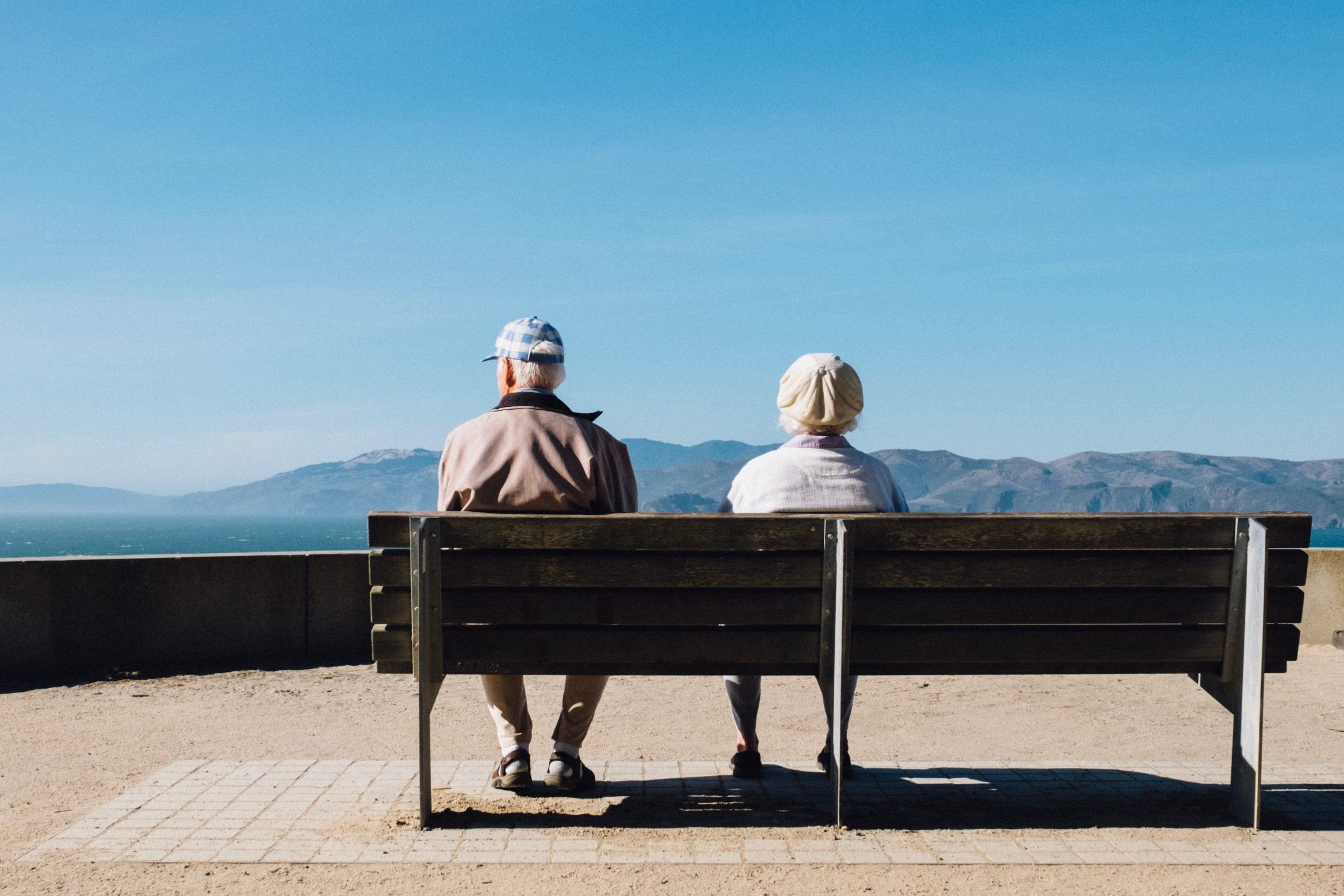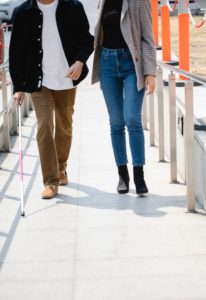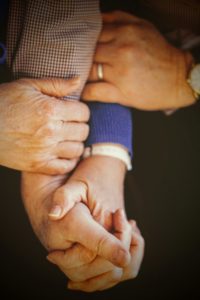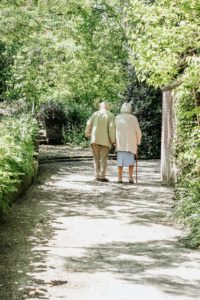How to Prevent Elderly from Falling

Written by Anna Bullough
As we age, our bodies become more fragile, and the risk of falls increases significantly. For elderly individuals, falls can have devastating consequences, leading to serious injuries and a decline in quality of life.
Fall prevention is critical for seniors, and it’s essential for family members and caregivers to be proactive in identifying and addressing fall risks.
This article will provide valuable insights into fall prevention for seniors, including practical fall prevention tips, technologies, and the importance of seeking professional help. Whether you’re a caregiver or an older adult seeking information, these fall prevention guidelines can help reduce the risk of falls and promote safety and well-being.
Top 10 Causes of Falls in Seniors
Consequences of falls in the elderly are serious and severe. And there are several factors that can increase their likelihood. These factors can be broadly categorized into medical conditions, medication side effects, and environmental hazards.
Here are the top ten causes of falls in seniors:
- Medical conditions: Parkinson’s disease, dementia, arthritis, and other medical conditions can affect balance and coordination, increasing the risk of falls.
- Medication side effects: Certain medications, such as sedatives, antihypertensives, and antidepressants, can cause dizziness, drowsiness, and changes in blood pressure, which can affect an individual’s balance and coordination.Environmental hazards: Poor lighting, cluttered walkways, uneven flooring, stairs, bathroom surfaces, and outdoor walkways can all be potential hazards for seniors if they are not adequately maintained or modified for individuals with mobility issues.
- Vision impairments: Visual impairments, such as cataracts and macular degeneration, can affect spatial awareness and balance, increasing the risk of falls for seniors.
- Hearing impairments: Hearing impairments can affect balance and coordination by affecting the perception of sound and motion.
- Muscle weakness: Muscle weakness can reduce balance and stability, making seniors more susceptible to falls.
- Footwear: Poorly fitting or inappropriate footwear can affect balance and increase the risk of tripping or slipping.
- Dehydration: Dehydration can cause dizziness and lightheadedness, affecting balance and increasing the risk of falls for elderly.
- Poor nutrition: A poor diet can lead to muscle weakness and fatigue, increasing the risk of falls.
- Fear of falling: Fear of falling can lead seniors to limit their activities, which can result in muscle weakness and reduced mobility, further increasing the risk of falls.
Identifying and addressing these risk factors is critical for fall prevention for elderly individuals. Family members and caregivers can work with healthcare providers to identify potential medical issues and medication side effects that could contribute to falls. They can also assess the home environment for potential hazards and take steps to modify the environment to help prevent falls in elderly individuals.
Tips for Preventing Senior Falls
Preventing falls is crucial for maintaining the health and wellbeing of seniors. Here are some practical Elderly fall prevention tips to help reduce the risk of falls:
- Keep the home well-lit and free of clutter: Adequate lighting and a clear pathway can help prevent trips and falls for seniors. Ensure that stairways, hallways, and other high traffic areas are well-lit and that obstacles such as cords and clutter are removed.
- Wear appropriate footwear: Properly fitting shoes with non-slip soles can provide stability and reduce the risk of falls. Avoid walking in socks or shoes with slippery soles.
- Use assistive devices: Handrails, grab bars, and other assistive devices can provide additional support and reduce the risk of falls. Install these devices in areas such as stairways, bathrooms, and other potentially hazardous areas.

- Exercise and balance training: Exercise and balance training can improve strength and coordination, reducing the risk of falls for the elderly. Encourage seniors to participate in low-impact activities such as walking, yoga, or tai chi.
- Medication management: Review medications with a healthcare provider to identify potential side effects that could increase the risk of falls.
- Eye exams: Regular eye exams can help identify vision problems that could contribute to falls.
- Stay hydrated: Drinking plenty of fluids can help prevent dehydration, which can cause dizziness and lightheadedness, increasing the risk of falls.
- Keep emergency response information easily accessible: Have emergency phone numbers and other relevant information easily accessible in case of a fall or other medical emergency.
Family members and caregivers play a crucial role in identifying and addressing fall risks for seniors. Be proactive in assessing the home environment for potential hazards, and encourage seniors to participate in activities that promote strength and coordination. By taking these steps, you can help reduce the risk of falls and promote a safer and more fulfilling life for seniors.

Fall Prevention Technology
Technology has revolutionized fall prevention for seniors. Here are some
of the latest technologies available to help reduce the risk of falls:
- Wearable devices: These devices can track the wearer’s movements and alert them or caregivers if a fall is detected. Some devices can also provide information on activity levels and heart rate, which can help seniors monitor their overall health.
- Home monitoring systems: These systems use sensors placed throughout the home to detect movement and alert caregivers if abnormal activity is detected. They can also track daily routines and provide reminders for medication and other tasks.
- Telehealth: Telehealth services allow healthcare providers to monitor patients remotely, providing guidance and support for fall prevention and other health concerns.
- Fall risk assessment tools: These tools use questionnaires and other assessments to identify individuals who may be at risk of falling. Healthcare providers can use this information to develop personalized fall prevention plans.
While these technologies can be beneficial, they also have some limitations. For example, wearable devices may not be comfortable for some seniors, and home monitoring systems may not be affordable for everyone. It’s essential to choose the right technology for each individual’s needs and preferences.
When considering fall prevention technology, it’s essential to involve healthcare providers and caregivers in the decision-making process. They can help identify which technologies are most appropriate for each individual’s needs and provide guidance on how to use them effectively.
Technology has revolutionized fall prevention for seniors, providing new tools and approaches for reducing the risk of falls. By understanding the benefits and limitations of these technologies and involving healthcare providers and caregivers in the decision-making process, seniors can stay safe and independent in their homes for longer.
Importance of Seeking Professional Help

While there are many steps that seniors and their caregivers can take to prevent falls, it’s important to recognize the value of seeking professional help in reducing fall risks. Healthcare providers and home care services can offer specialized expertise and customized care plans that can make a significant difference in fall prevention.
Healthcare providers, such as doctors and physical therapists, can conduct fall risk assessments and identify any underlying medical conditions or medications that may increase the risk of falls. They can also recommend appropriate exercises and other interventions to improve strength, balance, and coordination. Additionally, they can provide guidance on medication management and other lifestyle modifications that can reduce fall risks.
Home care services can provide a range of support services to help seniors maintain their independence and reduce fall risks. These services can include assistance with activities of daily living, such as bathing and dressing, as well as help with medication management and meal preparation. Home care providers can also help with home modifications, such as installing grab bars and removing tripping hazards.
Working with professionals who are trained in fall prevention can provide peace of mind for seniors and their caregivers, knowing that they are receiving the best possible care to reduce fall risks. By seeking help early and proactively addressing fall risks, seniors can maintain their independence and quality of life for longer.
Conclusion
By implementing the tips and strategies outlined in this article, you can take steps to reduce the risk of falls in your loved ones. From keeping the home well-lit and free of clutter to incorporating exercise and balance training, there are many practical steps you can take to promote fall prevention.
It’s important to remember that fall prevention is an ongoing process that requires vigilance and proactivity. By working with healthcare providers, home care services, and other professionals, you can ensure that your loved ones receive the best possible care and support for fall prevention.
If you’re looking for additional assistance with fall prevention, our in-home care services are here to help. Suzy’s Senior Services offer a range of personalized care plans and support services designed to meet the unique needs of each individual. Contact us today to learn more about how we can help you and your loved ones stay safe and healthy at home. Call us at 801-540-2077 to learn more.
My family and I could not more pleased with the
care and companionship Suzy’s Senior Services
has provided to our elderly mom for the past several years.
“Suzy’s standard of care is not ‘just the normal.’ She is compassionate, generous, and sets the bar high when it comes to taking care of mom.
She cleans and helps with errands, but above all she is a great friend – and it is obvious she genuinely cares about mom’s well-being.
My mom adores her, looks forward to their time together and we know that in Suzy’s care she is always safe.
We are lucky to have her in our lives and feel like she is simply one of the family. If people are looking for a kind, service driven person to help their senior, Suzy’s is the only choice.
– C. Dumas
For at-home services near Weber, call us at 801-540-2077 to learn more.